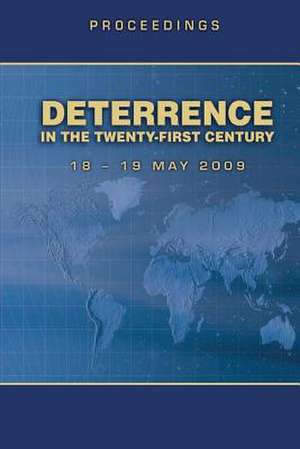Deterrence in the Twenty-First Century - Proceedings 18-19 May 2009
Autor Air Force Research Instituteen Limba Engleză Paperback
Preț: 229.99 lei
Nou
Puncte Express: 345
Preț estimativ în valută:
44.01€ • 45.95$ • 36.34£
44.01€ • 45.95$ • 36.34£
Carte disponibilă
Livrare economică 25 martie-08 aprilie
Preluare comenzi: 021 569.72.76
Specificații
ISBN-13: 9781478362807
ISBN-10: 1478362804
Pagini: 328
Dimensiuni: 152 x 229 x 18 mm
Greutate: 0.44 kg
Editura: CREATESPACE
ISBN-10: 1478362804
Pagini: 328
Dimensiuni: 152 x 229 x 18 mm
Greutate: 0.44 kg
Editura: CREATESPACE
